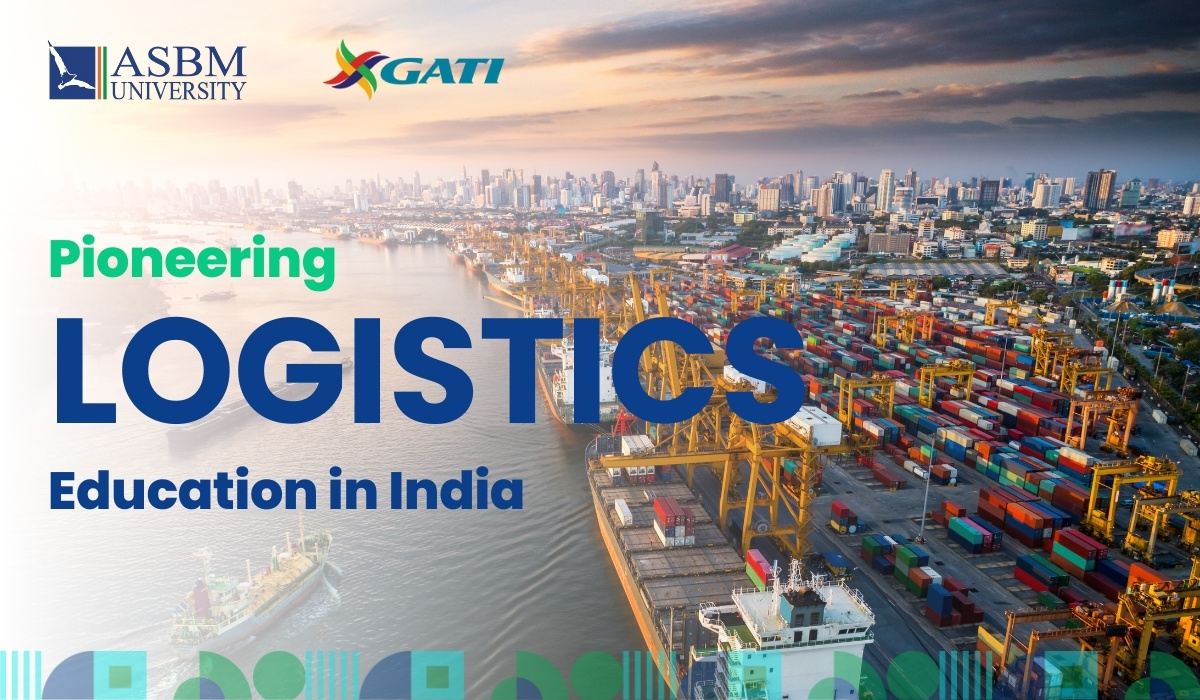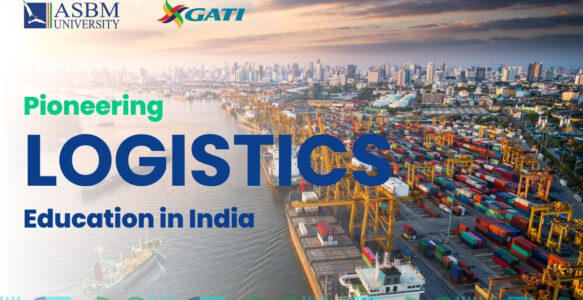ASBM’s Visionary Leap: Pioneering Logistics Education in India

In 2006, as India’s economy rapidly expanded, a crucial gap in the education system became clear: the need for specialised logistics and supply chain management expertise. The ASBM University formerly known as Asian School of Business Management, led by Professor Biswajeet Pattanayak, identified this gap and sought to fill it.
Professor Pattanayak, along with industry leaders like K. Ramachandran from Gati Ltd., one of the largest logistics companies in the Asia-Pacific region, laid the foundation for the Gati Center of Excellence in Logistics & Supply Chain Management. This partnership between ASBM and Gati was a turning point for logistics education in India.
A Step Towards Innovation
The Gati Center of Excellence marked a new direction for ASBM. It wasn’t just another academic programme but a solution to a growing need in the business world. Logistics and supply chain management were essential to India’s economic growth, yet there was a shortage of skilled professionals in the field. ASBM’s new programme aimed to address this by combining rigorous academic learning with practical industry experience.
Students enrolled in the programme would gain both theoretical knowledge and hands-on training. A key feature was the one-month internship at Gati’s advanced warehouses and training labs, providing students with direct exposure to real-world logistics operations.
Overcoming Challenges
In 2006, logistics education was still an unfamiliar concept for many. Prospective students often questioned why they should pursue a specialised programme instead of a traditional MBA. However, ASBM and Gati remained committed to their vision. They held workshops and industry seminars to raise awareness about the importance of MBA degree in logistics and supply chain management.
As the programme gained recognition, more students enrolled. The first batch included fresh graduates, working professionals, and even industry veterans looking to enhance their skills. Over the years, graduates from the Gati Center have had a significant impact on the industry.
One example is Deepak Mishra, an MBA in Logistics & Supply Chain graduate, is now a supply chain leader at SKF Group, where he drives operational excellence and transformation. His career journey includes leadership roles at Amazon as a Supply Chain Manager for North America and at IKEA as a Supply Chain Leader. His expertise, developed at ASBM, helped him excel in roles that require strategic planning, operational efficiency, and supply chain optimisation.
Another success story is Ayushman Ray, who currently serves as the State Head for Odisha at Reliance Retail. Ayushman’s leadership in retail operations is a direct result of the skills he gained at ASBM, where the logistics programme provided him with the foundation to manage large-scale supply chain operations. His role involves overseeing retail activities across a large region, ensuring smooth logistics, inventory management, and supply chain efficiency for one of India’s largest retail companies.
Setting New Standards
The success of the Gati Center of Excellence inspired other institutions to launch similar programmes, but ASBM stayed ahead of the curve by continuously updating its curriculum. The Centre became a hub for logistics research and innovation, attracting professionals from across Asia to its annual conferences and workshops.
The supply chain market size is estimated to be around $3.4 billion in 2023 and is projected to grow at a CAGR of 11.1% to reach $6.4 billion by 2030.
By 2024, logistics and supply chain management have become essential parts of India’s business landscape. Specialised education in these fields is now widely recognised. ASBM’s early commitment to logistics education has helped India meet the growing demand for skilled professionals in this area.
ASBM’s commitment to innovative education has cemented its role as a leader in logistics and business management. The pioneering efforts made in 2006 have continued to shape the industry, preparing students for the demands of a global economy.



